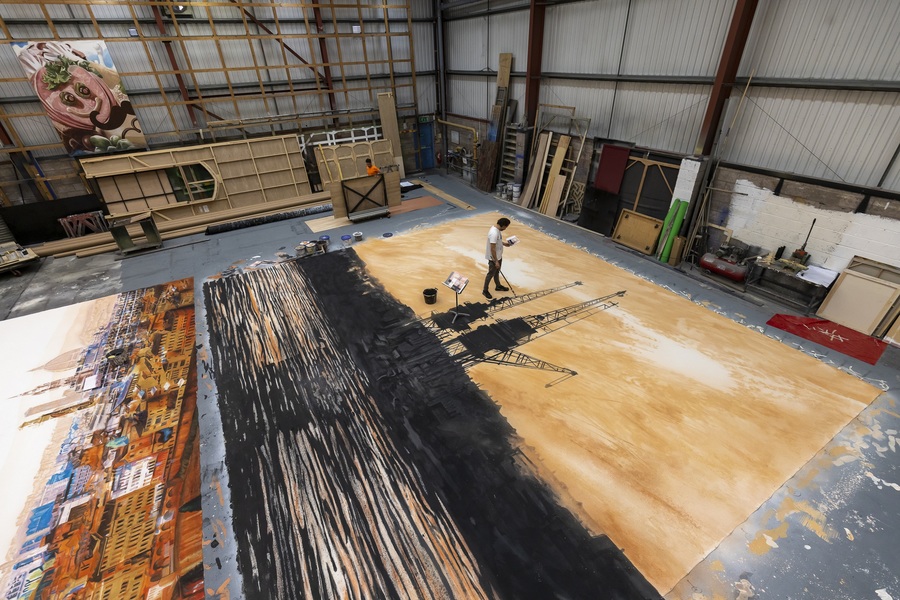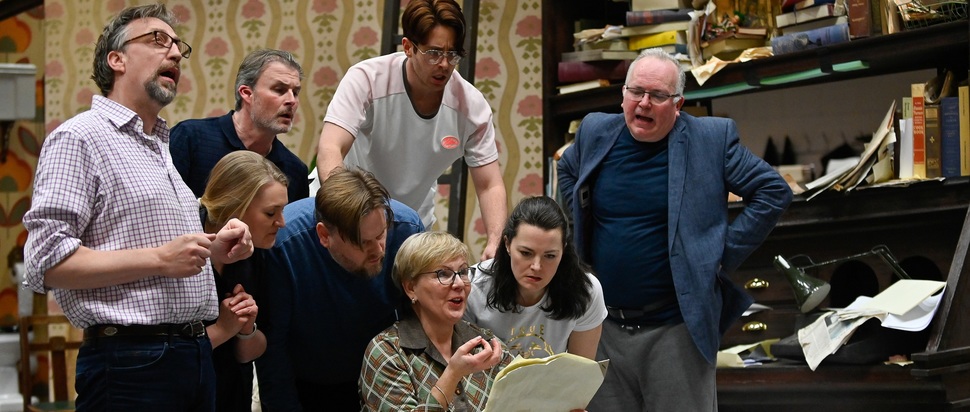Scottish Opera introduce their new take on Il Trittico
We meet some of the team behind Scottish Opera's upcoming production of Puccini's Il Trittico, situating the three-part opera in a Scottish vernacular
In its 60th year, Scottish Opera has elected to tackle heaven, hell, and Glasgow. Tapping some of opera’s greats, including director Sir David McVicar, the company has taken on Puccini’s rarely-performed Il Trittico, a triptych of opera one-acts. This Dantean production – both in scope and in genesis – is rarely programmed in its totality, in part due to its length (the full show clocks in at nearly four hours, including two intermissions), but also because of the immensity of the show itself. At times, Il Trittico has a downright satirical tone, with crushingly real characters who seek to understand (and misunderstand) each other, but who allow their pride to get in the way. Il Tabarro, Suor Angelica, and Gianni Schicchi, the three one-acts that comprise the triptych, are intimate and at times claustrophobic portraits of the human reaction to and anticipation of death.
“There’s something so great about doing pieces like this in a space like the Theatre Royal,” says set designer Charles Edwards. “It brings such intimacy... but claustrophobia, this feeling of being stuck, came into the way I designed all three.”
That intimacy will be felt by Scottish audiences not only through the performances, but in the setting. General Director Alex Reedijk delights in how the creative team “came up with a response to the three pieces that landed them in a kind of Scottish vernacular...They’ve referenced the Glasgow tenements; they’ve referenced different eras.”
Edwards explains that he wanted his designs not to imitate Glasgow, but to evoke it. “It’s an atmosphere… there’s [a need] to think about places other than Florence, or Tuscany.”
In some ways, Il Trittico’s original settings of Paris, Siena, and Florence align closely with Glasgow. Both Glasgow and Paris are cities built around a canal system, created as a mercantile hub. Edwards wanted to explore the “somewhat inhuman machine for workmen and working women” that a growing industrial city can become.

Photo: James Glossop
The correlations are not solely aesthetic. Parts of Il Tabarro, Edwards feels, sound almost like a workers' rights declaration. “Nowadays, with our cost of living crisis and half the country on strike, there’s an element of that that feels really true.”
For costume designer Hannah Clark, the relatability of these characters was undeniable as well: “The people that we find in these pieces could be from Glasgow. They’re everyday people,” she says. “The brilliant thing about these pieces in particular is that they are so human.”
Human, indeed, but a massive undertaking nonetheless. With three distinct but interrelated operas, the question of how to build cohesion looms large. Their approach, says Clark, was highly influenced not only by Glaswegian aesthetics, but also time. “There’s this... 20th century progression.” The pieces are set in the 1930s, 1940s, and late 1960s, respectively. “Stylistically they do look different, and I think that’s important as an evening. I think it would be a bit exhausting if you really stuck with the same aesthetic all evening. But they certainly do speak to each other.”
Edwards, Reedijk, and Clark all seem to agree: there is no better time than right now for this fresh new approach to Il Trittico. “It’s a joyful, big piece of art,” says Clark. Edwards describes it as “a rollercoaster of an event,” a timely piece that is “bordering on extravagant.” After years of deprivation, it’s hard to think of an audience that isn’t craving extravagance and joy.
“As an audience, you go on this really intense emotional journey that does finally give you not just a sense of hope, but a sense of relief,” says Reedijk. “Part of our role as a company is to send people away... a little hopeful.”
It's hard to think of something a contemporary audience may be seeking more than hope and relief. It would appear that a little (or a lot) of Puccini is just what the doctor ordered.
Il Trittico by Scottish Opera, Theatre Royal Glasgow, 11, 15 & 18 Mar and Festival Theatre Edinburgh, 22 & 25 Mar
